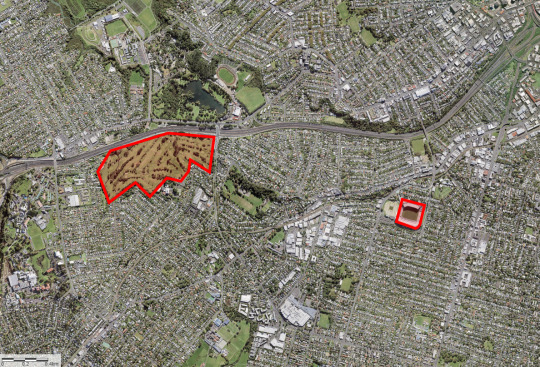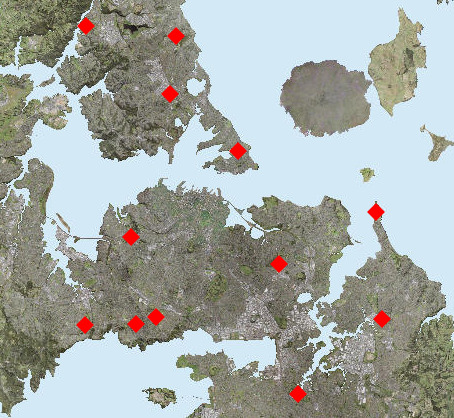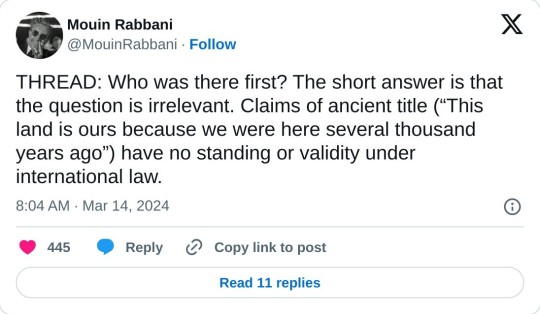#property in New Zealand
Explore tagged Tumblr posts
Text
.
#need to belong to a rich neoliberal woman who’s invested in my safety#she thinks my leftist ideas are quaint#she gives me Xanax when I get too excited about the news (it’s stronger than she says it is and i know but i don’t care)#she thinks it’s fun to set my daily schedule but#well i like it because I’m being told what to do but it ends up being enriching and constructive#even if it includes chores because you know what? building better habits is constructive too#anyway yeah she has a 25 step plan for surviving the fallout of climate change#property in New Zealand#and being useful in that space is part of my training too of course#but she cares about my comfort#also she ties me up and just goes crazy on me I’m like a bop it she pushes my buttons and I make a lot of noise and i eat her sloppy style#i mean not that sloppy but i do tend to use a fair amount of saliva#maybe we’d rarely have penetrative sex but she doesn’t pressure me into it and in fact really takes control#telling me to relax and let it feel good#and we cuddle and she’s very warm and maybe she gains some weight while we’re dating but i love her and love it because i love her#im sick im fucked in the head dude
3 notes
·
View notes
Text
We don't live in a game of monopoly, which by the way, was invented in the early 1900s to actually teach children about the pitfalls of an economy that is premises on land speculation and luck.
— New Zealand MP Chlöe Swarbrick
15 notes
·
View notes
Note
I know you haven’t talked about it in a bit but I’m the regency au will the fact that Arthur’s children can’t inherit ever be a thing that causes resentment from the kids? (Far in the future of course)
Hi, so the biggest reason I haven't talked about it in a while is that uni is kicking my ass lol. That's why I haven't posted art in a hot minute, let alone any writing. When I'm out of paper hell and on break, I'll hopefully be back at it! I actually wanted to draw some of the kids circa the 1820s when they're older for shits and giggles.
So here's the thing about Regency inheritance, his kids do get something! So, the estate itself and the title the Kirklands hold is entailed. An entail means that only the oldest, closest, legitimate male family member can inherit that title and estate. If you've ever read Pride and Prejudice or seen Downton Abbey, this is why Mr. Collins and Matthew Crawley are relevant. This just means that Alfred will not inherit Alwyn's title and the land.
However, money and non-entailed property is a different story. The land that came from Alasdair, Seán, and Molly's father is not entailed, it was simply property Alwyn and Arthur's father took on when Igraine remarried. It was also common in cases where illegitimate children were acknowledged for their father to put aside money in a trust for their children.
In the case of the Regency AU, Arthur and Alwyn have arranged a trust for each of his children (and a dowry for Eleanor that is ultimately never used). When he's older, Alfred cares less about getting a title and more about being trusted with some responsibility. I'm undecided about whether he'd follow Arthur into the military or if he'd seek employment elsewhere (leaning toward the latter as his little "rebellion"). Matthew is a lot more passive, and I think he's content knowing he's not going to be left out to dry. Similarly, Ralph just wants the freedom to be himself. They're both younger sons anyway, so they never had any of the expectations Alfred might've had. Similarly, Eleanor would not have been up to inherit land anyway, as the youngest and as a woman. She at least has the fortune of having a father who isn't keen on forcing her to marry.
Long story short, while I can see Alfred developing some resentment regarding the lack of trust Arthur puts in him, the inheritance isn't necessarily an issue. They're provided for, they just don't get that title or the estate.
#ask#hetalia#regency au#hws america#hws canada#hws australia#hws new zealand#nyo!new zealand#hws wales#hws england#anglo family#if anyone knows more about regency inheritance please do correct me#from light research tho these are the principles i could find#in the end the idea i've got is the property is gonna go to alasdair and sigrid's kids#alwyn does get married but they don't have children (but they're happy bc he's an unbothered king)#unsure if i will cover any of that in the narrative#but i may draw it for funsies someday
12 notes
·
View notes
Text
hey if u live in christchurch or ashburton or rolleston or geraldine or anywhere in the area i love u okay take a breath
#nz#new zealand#just saw the news on the 6.0 i hope your properties are stable and safe and youre able to take a moment to yourself#i still remember feeling the 2011 quake back when i lived in invers. and the way ot affected my cousins and aunt and uncle.#you've all my love and support
3 notes
·
View notes
Text
Property Investment Loans with Rhino Mortgage

One of the most trusted methods of making money has historically been real estate investing. Property investing offers numerous possibilities depending on your goals, such as expanding your portfolio, earning rental income, or securing your financial future. However, turning this vision into reality often requires the right financial support, which is why property investment loans are crucial. At Rhino Mortgage, we specialize in guiding you through the intricacies of real estate financing so you can achieve your investment objectives.
What is a Property Investment Loan?
One of the most trusted methods of making money has historically been real estate investing. Property investing offers numerous possibilities depending on your goals, such as expanding your portfolio, earning rental income, or securing your financial future. However, turning this vision into reality often requires the right financial support, which is why property investment loans are crucial. At Rhino Mortgage, we specialize in guiding you through the intricacies of real estate financing so you can achieve your investment objectives.
Why Choose a Property Investment Loan?
Leverage Your Capital: A property investment loan allows you to use borrowed funds to acquire high-value assets without depleting your savings.
Generate Passive Income: Rental income from your investment property can help offset loan repayments and even create positive cash flow.
Tax Benefits: Many expenses associated with investment properties, including interest payments, can be tax-deductible.
Capital Growth: Over time, your property’s value may increase, providing a significant return on your initial investment.
Key Features of Property Investment Loans
1. Loan-to-Value Ratio (LVR):
The amount of a property's value that a lender is willing to finance is known as the loan-to-value rate. For investment homes, the majority of lenders provide LVRs of up to 80%; however, this can change depending on your financial situation.
2. Interest Rates:
a property's owner-occupied properties, investment loans may have somewhat higher interest rates. In order to obtain affordable rates that complement your investment strategy, Rhino Mortgage collaborates with a variety of lenders.
3. Loan Structures:
Property investment loans can be structured in various ways, including:
Principal and Interest Loans: These involve paying off both the loan amount and interest over time.
Interest-Only Loans: Designed to minimize initial repayments, this option is popular among investors seeking to maximize cash flow.
4. Flexible Repayment Options:
You can select a plan that works for your cash flow and investment timeframe thanks to adjustable payback terms.
How Rhino Mortgage Simplifies Your Investment Journey
With many options and aspects to take into account, obtaining a property investment loan can feel enticing, as we at Rhino Mortgage are aware. Here's how we can support:
1. Expert Guidance:
Our knowledgeable mortgage brokers take the time to learn about your financial objectives before offering advice that is specific to your requirements.
2. Access to Multiple Lenders:
You have access to a wide range of loan products and low rates thanks to our partnerships with numerous lenders.
3. Streamlined Process:
We manage the paperwork and discussions from pre-approval to settlement, making the process easy and stress-free.
4. Ongoing Support:
As your portfolio expands, we can help you review your loan arrangement as part of our ongoing assistance for your investing journey.
Tips for Securing a Property Investment Loan
Improve Your Credit Score: A strong credit score increases your chances of approval and access to better rates.
Save for a Larger Deposit: A higher deposit lowers your LVR, reducing the lender’s risk and potentially lowering your interest rate.
Plan Your Budget: Factor in all costs, including stamp duty, property management fees, and maintenance expenses.
Seek Professional Advice: Work with a trusted mortgage broker like Rhino Mortgage to navigate the complexities of investment loans.
Why Choose Rhino Mortgage for Your Property Investment Loan?
Rhino Mortgage is your go-to partner for real estate investment loans because of its many years of experience and dedication to quality. This is why investors have faith in us:
Tailored Solutions: We take a personalized approach, ensuring your loan fits your unique investment strategy.
Transparency: Our team keeps you informed every step of the way, so you always know what to expect.
Industry Expertise: With deep knowledge of the property market and lending landscape, we provide insights that empower your decisions.
Conclusion
A tried-and-true route to financial success is real estate investing, but it calls for careful planning and the appropriate funding. With a Rhino Mortgage property investment loan, you may confidently accomplish your objectives and open up new opportunities. Our knowledgeable staff can help you at every stage, whether you're a novice investor or hoping to grow your holdings.
Are you prepared to move forward? To learn more about your options for a property investment loan and to begin constructing your future, get in touch with Rhino Mortgage right now.
0 notes
Text
Development Finance in NZ: What You Need to Know to Fund Your Project
As we all know, building and property development requires careful planning and substantial funding. Whether in New Zealand or any other country, people desire the same. Therefore, as a resolution, sticking to “Development Finance” might help, especially if you are from England. Moreover, opting for “Development Finance” helps by offering the financial support needed to turn plans into reality. Whether you’re new to building, a seasoned developer, or expanding your real estate portfolio. Furthermore, you need to understand your finance options for a smooth project. Therefore, here is a guide that covers the basics to help you secure development finance in NZ, with tips to simplify your financing journey.

Understanding Development Finance in New Zealand
If you are new, then you must know that “Development Finance in New Zealand” is a specialized funding option. Whether you are looking for construction, renovations, or property development. Moreover, unlike traditional home loans, they cover stages from land purchase to development costs and property sales. You may find it available to individuals, companies, and partnerships. It even supports investment in residential, commercial, and mixed-use projects. That’s how you can understand the concept of “Development finance in New Zealand” in short.
Why Development Finance is Essential
Rather than one, there are hundreds of reasons that make acquiring the “Development Finance” essential and valuable. Let’s figure out with the help of below points:
So, basically, without development finance, many projects couldn’t start.
Secondly, development costs include more than just land; they cover planning, materials, labor, and unexpected expenses.
Lastly, development finance helps fund these needs, preserving developers' capital and ensuring steady cash flow throughout the project.
Types of Development Finance Available in NZ
New Zealand offers various development finance options to applicants. The best part is that each development finance option has unique features. Here’s an overview of the most common types:
Land and Construction Loans
Land and construction are ideal if you are looking forward to buying land and building from scratch.
Funds are provided in these types of loans for land acquisition and released in stages as construction progresses.
Further, it is best suited for new builds and large-scale developments.
Bridging Loans
Besides, it helps secure long-term finance for achieving bigger goals. It even provides short-term funding for buying a new property.
These loans are often used to bridge the gap between buying and selling properties.
Also, it typically has higher interest rates than standard loans.
Mezzanine Finance
It acts as a secondary loan, filling the gap between equity and the primary loan.
You may consider it useful for large, complex developments requiring extra capital.
Secured against the property, ideal when primary financing is insufficient.
Joint Venture Finance
Sometimes, property developers partner with lenders who provide funding in exchange for shared project ownership.
Besides, it is best suited when a developer has a solid project plan but limited capital.
The lender may gain a share of profits or property ownership upon completion.
Steps to Securing Development Finance in NZ
Here’s a simple step-by-step guide to help you learn about how to secure development finance in NZ. Moreover, it’s essential to understand the application process and criteria. So, without waiting any further, let’s dig in:
Create a Detailed Project Plan
Outline the project scope, timeline, costs, and expected returns.
Include risks and contingency plans to show lenders you’re prepared.
Prepare Financial Projections
Detail costs for land, construction, and additional expenses.
Project cash flow and demonstrate how you’ll repay the loan.
Review Your Credit and Financial Status
Strong credit and financial health improve approval chances.
Ensure a solid financial track record to reduce lender risk.
Compare Lenders and Loan Options
Research lenders with property development experience.
Choose terms that match your project’s needs for better rates and flexibility.
Submit a Complete Application
Include all supporting documents like feasibility studies, contracts, and permits.
A thorough application boosts approval chances and speeds up the process.

Key Considerations When Choosing a Development Finance Lender
Remember, it is essential to choose the right lender, as it is a key to your project’s success. Now, let’s consider these factors that can help you in choosing wisely:
Interest Rates and Fees
First, we need to look beyond low rates and check for additional fees (application, drawdown, valuation) that affect total cost.
Loan Flexibility
Some lenders offer flexible repayment schedules or term extensions. This loan flexibility can be helpful if delays or budget changes occur.
Drawdown Structure
Ensure funds are released in stages that match your project’s cash flow and construction phases to avoid delays.
Experience in Development Finance
Choose a lender experienced in property development; they understand your needs and can process applications faster.
Benefits of Using Development Finance for Your Project
If you don’t know, repayment securing development finance provides several benefits. Learning about these benefits can help ensure your project’s success; let’s get started:
Better Cash Flow: The very first benefit development finance provides is related to covering project costs. That helps in freeing up your capital for other investments.
Flexible Repayment: Also it offers flexible repayment adjustments. Thus, you can make payments that adjust or fit into your project timeline.
Access to Larger Projects: Development finance enables you to take on bigger projects and grow your portfolio.
Reduced Financial Risk: Using a loan instead of personal funds minimizes your financial risk.
Common Challenges and How to Overcome Them
Unfortunately, along with numerous benefits, there are some common challenges in development finance. Let’s see what challenges they are:
Strict Lender Requirements: Extensive documentation is often needed. Prepare a thorough project plan and financial projections to speed up approval.
Handling Project Delays: Unexpected delays can occur; include contingencies in your budget and timeline to stay on track.
Complex Loan Terms: Loan agreements can be complicated. Consult a financial advisor to ensure you understand the terms fully.
How Construction Loans Can Help with Your Development Finance Needs
No wonder, as a newcomer, navigating development finance can be challenging for you. But at Construction Loans, you can enjoy the simple process with tailored solutions for all project types. Whether you're a first-time builder or a seasoned developer, our team secures competitive finance options across New Zealand, ensuring your project is fully funded. Visit our website to see how we can support your next development.
0 notes
Text

#Here are some of the Healing Properties of Colostrum#•#Enhanced Immune Function#Improved Gut Health#Tissue Repair and Growth#Antioxidant Protection#colostrum#new zealand dairy#fitness
0 notes
Text

Looking to buy residential property in the stunning landscapes of New Zealand? Count on Lin Ma - Award-Winning Harcourts Grenadier Sales Consultant – to discover your dream home.
0 notes
Text

THIS WAS ON A FRIEND’S PAGE: An anguished question from a Trump supporter: ‘Why do liberals think Trump supporters are stupid?’
THE SERIOUS ANSWER: Here’s what the majority of anti-Trump voters honestly feel about Trump supporters en masse:
That when you saw a man who had owned a fraudulent University, intent on scamming poor people, you thought "Fine."
That when you saw a man who had made it his business practice to stiff his creditors, you said, "Okay."
That when you heard him proudly brag about his own history of sexual abuse, you said, "No problem."
That when he made up stories about seeing Muslim-Americans in the thousands cheering the destruction of the World Trade Center, you said, "Not an issue."
That when you saw him brag that he could shoot a man on Fifth Avenue and you wouldn't care, you exclaimed, "He sure knows me."
That when you heard him relating a story of an elderly guest of his country club, an 80-year old man, who fell off a stage and hit his head, to Trump replied: “‘Oh my God, that’s disgusting,’ and I turned away. I couldn’t—you know, he was right in front of me, and I turned away. I didn’t want to touch him. He was bleeding all over the place. And I felt terrible, because it was a beautiful white marble floor, and now it had changed color. Became very red.” You said, "That's cool!"
That when you saw him mock the disabled, you thought it was the funniest thing you ever saw.
That when you heard him brag that he doesn't read books, you said, "Well, who has time?"
That when the Central Park Five were compensated as innocent men convicted of a crime they didn't commit, and he angrily said that they should still be in prison, you said, "That makes sense."
That when you heard him tell his supporters to beat up protesters and that he would hire attorneys, you thought, "Yes!"
That when you heard him tell one rally to confiscate a man's coat before throwing him out into the freezing cold, you said, "What a great guy!"
That you have watched the parade of neo-Nazis and white supremacists with whom he curries favor, while refusing to condemn outright Nazis, and you have said, "Thumbs up!"
That you hear him unable to talk to foreign dignitaries without insulting their countries and demanding that they praise his electoral win, you said, "That's the way I want my President to be."
That you have watched him remove expertise from all layers of government in favor of people who make money off of eliminating protections in the industries they're supposed to be regulating and you have said, "What a genius!"
That you have heard him continue to profit from his businesses, in part by leveraging his position as President, to the point of overcharging the Secret Service for space in the properties he owns, and you have said, "That's smart!"
That you have heard him say that it was difficult to help Puerto Rico because it was in the middle of water and you have said, "That makes sense."
That you have seen him start fights with every country from Canada to New Zealand while praising Russia and quote, "falling in love" with the dictator of North Korea, and you have said, "That's statesmanship!"
That Trump separated children from their families and put them in cages, managed to lose track of 1500 kids, has opened a tent city incarceration camp in the desert in Texas - he explains that they’re just “animals” - and you say, “Well, OK then.”
That you have witnessed all the thousand and one other manifestations of corruption and low moral character and outright animalistic rudeness and contempt for you, the working American voter, and you still show up grinning and wearing your MAGA hats and threatening to beat up anybody who says otherwise.
What you don't get, Trump supporters, is that our succumbing to frustration and shaking our heads, thinking of you as stupid, may very well be wrong and unhelpful, but it's also...hear me...charitable.
Because if you're NOT stupid, we must turn to other explanations, and most of them are less flattering.
- Adam-Troy Castro
(To all who agree with its content, I ask that you PLEASE SHARE IT on your own post, and ENCOURAGE OTHERS to do the same.)
#fuck trump#maga morons#fuck maga#maga cult#traitor trump#republican assholes#republican cheats#trump is an idiot and so are his voters#inbred#fuck mtg#fuck gaetz#fuck elon musk#fuck elon#fuck nancy mace#fuck you trump#trump is a joke#crooked donald#trump is a criminal#trump is a threat to democracy#trump is a felon#trump is the enemy of the people#trump is guilty af#fuck the gop#republican science deniers#fuck republicans#fuck the republikkkans#amerikkka#amerika#good job dipshits#no mercy for insurrectionists
2K notes
·
View notes
Text
Property valuation is the process of estimating the value of a property based on a variety of factors. Property valuation is important for a number of reasons, including buying and selling property, obtaining financing, and assessing property tax.
In this guide, we will provide a complete overview of property valuation, including the methods used, factors considered, and the role of a property valuer.
#Property valuation#Property valuation near me#Property valuation nz#Property valuation online#Online Property valuation#canterbury appraisals#canterbury property appraisal#canterbury mortgage advisor#Experienced property valuation company#Top-rated appraisal services#Affordable house valuations#artists on tumblr#property valuation christchurch#canterbury mortgage advisor near me#canterbury property#Expert property appraisals#Property valuation companies Christchurch#Home appraisal cost New Zealand#House valuations Canterbury#Property appraisals Christchurch
0 notes
Text
Michael Jackson - Will You Be There 1993
"Will You Be There" is the eighth single from Michael Jackson's 1991 album Dangerous. The song gained recognition for its appearance on the soundtrack to the 1993 film Free Willy, of which it is the main theme, and was also included in the album All Time Greatest Movie Songs and video game Michael Jackson: The Experience. "Will You Be There" became yet another successful single from Dangerous, and peaked within the top ten of the charts in USA, Belgium, Canada, the Netherlands, New Zealand, Ireland, Switzerland, and the UK.
It won the 1994 MTV Movie Award for Best Song from a Movie. Jackson revealed in Living with Michael Jackson that "Will You Be There" was one of several songs he wrote in addition to "Heal the World" while at the Giving Tree, located on his Neverland Ranch property.
It received 40,6% total yes votes. :'(
youtube
973 notes
·
View notes
Text


Amazing 1975 home in North Shore City, Auckland, New Zealand. 5bds, 4ba, 2,852.44sqft. Price by negotiation.


What a gorgeous, tropical setting. Look at the natural light and views of the foliage.

It's like being in the tropics.

View of the upper loft from this room.

Next, along a long corridor, there's a nice TV room.

The kitchen is nice- look at the round windows.

Dining room next to the kitchen. Love the ceilings and glass roof.

Large primary suite with a deck.

You may wonder where the stairs in the ensuite lead to.

They lead to a big nope. Are you kidding me?

Here's a lovely sitting area in the loft.

The bedrooms are all very large with high, interesting ceilings.

It looks like each bedroom has its own private deck.

Spiral stairs come up to the highest private suite.

Walk out to the pool from the ensuite.


This is an unusual space.

I wonder if it's soundproof.

Here's a nice mosaic tile bath.

This home has so much space.


Here's a whole private quarter.

This pod is a bathroom for the pool area.

Beautiful pool looks like a resort.

0.99 acre.

https://www.trademe.co.nz/a/property/residential/sale/auckland/north-shore-city/campbells-bay/listing/4993806039
#modern homes new zealand#contemporary homes new zealand#modern architecture#houses#house tours#home tour
117 notes
·
View notes
Text
Why I hate Golf
This is the Takapuna Golf Course in Auckland, New Zealand.

It is in the middle of Auckland's north shore suburbs.
According to their website, they are one of the most popular golf courses in Aotearoa and have an annual visitor count of 60,000 people. They don't clarify if that is individual unique visitors or recounts, but lets be generous and say its unique visitors. 60,000, not bad.
This is Eden Park Stadium (the little square on the right) and oh look there's another golf course on the left there, ignore that one for now.

(the above two images are at the same scale)
Eden park has a capacity of 50,000 people. Ed Sheeran was here earlier this year and sold out the two nights he performed. That's 100,000 people in a weekend all in that little red square. 60,000 in a year no longer seems so great.
60,000 people per year is also only 160 people per day. 160 visitors to a golf course that is 470,000 square meters in area. Now the average property size in Auckland is 500 square meters. So the golf course takes up the area of 940 houses.
940 homes worth of land for 160 people.
And that is Auckland housing sizes. Auckland is horribly designed and very spread out. Let's instead look at Barcelona, considered one of the most well designed cities in the world.
This is Takapuna golf course side by side with Barcelona


(The scale is as close to being equal as I could get them, I don't have ArcGIS data for Barcelona so had to use google maps)
Each red square overlaid on Takapuna Golf Course is exactly 133m in height/width, the same size as each city block in Barcelona, road width included.
There are 23 Barcelona blocks worth of space in Takapuna Golf Course with room to spare. About 640 people live in each Barcelona block, that's 15000 people.
15000 peoples worth of homes and living spaces, sacrificed so 160 people can play golf in a day.
Now this is just one golf course in a big city, what's 15,000 people to a city of 1.6 million, who cares right?
Here is a wider shot of Auckland City.

Those red dots? They're golf courses.
There are 16 golf courses inside the metropolitan area of Auckland City (4 not pictured as Auckland is too spread out to get one clean screenshot). Keep in mind these are not rural golf courses out in the country, these are right beside housing developments and shopping malls. And for the record I could not find a single golf course in the Barcelona metropolitan area, you had to go out into the country before finding one.
So lets multiply that 15,000 people by 16 golf courses?
240,000 people.
With Auckland City's golf courses you could house 240,000 people comfortably with some good urban planning.
That is why I hate golf.
#For the record I'm not 100% against golf I just think if you have the time to play the most boring sport in the world#Then you also have time to drive 30 minutes out into the country side to play it#golf courses water usage is a whole other story but they aren't uniquely wasteful so thats why I havent mentioned that#golf courses in dry areas with water shortages are even worse than a waste of space and it doesnt matter if theyre urban or rural#but for golf courses in a place like auckland theyre water usage is generally fine and its the waste of land use that bothers me so#Auckland#New Zealand#Aotearoa#Golf#Barcelona#Why i hate golf#golf hate
369 notes
·
View notes
Text


The underground shelter, which was revealed last year, prompted conspiracy theories on social media about wealthy tech moguls building doomsday bunkers.
Mark Zuckerberg is downplaying the massive 5,000-square-foot bunker beneath his Hawaiian compound that was revealed in WIRED last year and prompted conspiracy theories on social media about wealthy tech moguls building doomsday bunkers.
The billionaire Facebook co-founder pushed back when Bloomberg reporter Emily Chang, in a video published Tuesday that chronicled her visit to Zuckerberg’s Lake Tahoe property, asked him what he’s “worried about” — and if there’s something he knows “that we don’t” in regard to the bunker.
“No, I think that’s just, like, a little shelter,” he told Chang. “It’s a basement! It’s a basement.”
Zuckerberg said the “basic house” on Kauai is largely used for storage space and that he frequently works from there but admitted to the underground bunker there, referring to it as a “hurricane shelter or whatever.”
“I think it got, like, blown out of proportion, as if the whole ranch was some kind of doomsday bunker, which is just not true,” he added.
Back in February, Ron Hubbard, the CEO of Atlas Survival Shelters, and Robert Vicino, founder of underground survival shelter company Vivos, spoke to The Hollywood Reporter about how news of Zuckerberg’s bunker increased business for them.
Hubbard said that it had “caused a buying frenzy,” while Vicino said, “Now that Zuckerberg has let the cat out of the bag, that’s got other people who share his status or are near his status starting to think, ‘Oh God, if he’s doing that, maybe he knows something that I don’t, maybe I should seek this out myself.’”
Zuckerberg purchased the 1,400-acre estate, which is known as Koolau Ranch, in a series of deals beginning in 2014, WIRED reported in 2023. According to planning documents for the property reviewed by the outlet, the compound will have its own energy and food supplies.
Construction of the compound and purchase of the land was estimated to cost around $270 million. Zuckerberg told Chang that he and his wife, Priscilla Chan, use the property for ranching and that he wants to “create the highest quality beef in the world.”
Along with Zuckerberg, other bunker-having tech moguls allegedly include Bill Gates, with Vicino telling THR in 2016 that Gates “has huge shelters under every one of his homes.”
PayPal CEO Peter Thiel had similar plans for a bunker-like compound in New Zealand, but those were thwarted in 2022 after backlash from local conservationists, according to The Guardian.
Zuckerberg’s property spawned similar criticism from locals and Indigenous groups in Kauai, with one former laborer on the compound telling WIRED, “It’s crazy that a man not from Hawaii comes here and purchases a bunch of land that limits the locals [from potentially buying] land. But it’s already happening.”
(continue reading)
42 notes
·
View notes
Text

twitter thread by Mouin Rabbani
March 14, 2024
Who was there first? The short answer is that the question is irrelevant. Claims of ancient title (“This land is ours because we were here several thousand years ago”) have no standing or validity under international law.
For good reason, because such claims also defy elementary common sense. Neither I nor anyone reading this post can convincingly substantiate the geographical location of their direct ancestors ten or five or even two thousand years ago.
If we could, the successful completion of the exercise would confer exactly zero property, territorial, or sovereign rights.
As a thought experiment, let’s go back only a few centuries rather than multiple millennia. Do South Africa’s Afrikaners have the right to claim The Netherlands as their homeland, or even qualify for Dutch citizenship, on the basis of their lineage?
Do the descendants of African-Americans who were forcibly removed from West Africa have the right to board a flight in Atlanta, Port-au-Prince, or São Paolo and reclaim their ancestral villages from the current inhabitants, who in all probability arrived only after – perhaps long after – the previous inhabitants were abducted and sold into slavery half a world away?
Do Australians who can trace their roots to convicts who were involuntarily transported Down Under by the British government have a right to return to Britain or Ireland and repossess homes from the present inhabitants even if, with the help of court records, they can identify the exact address inhabited by their forebears? Of course not.
In sharp contrast to, for example, Native Americans or the Maori of New Zealand, none of the above can demonstrate a living connection with the lands to which they would lay claim.
To put it crudely, neither nostalgic attachment nor ancestry, in and of themselves, confer rights of any sort, particularly where such rights have not been asserted over the course of hundreds or thousands of years.
If they did, American English would be the predominant language in large parts of Europe, and Spain would once again be speaking Arabic.
Nevertheless, the claim of ancient title has been and remains central to Zionist assertions of not only Jewish rights in Palestine, but of an exclusive Jewish right to Palestine.
For the sake of argument, let’s examine it. If we put aside religious mythology, the origin of the ancient Israelites is indeed local.
In ancient times it was not unusual for those in conflict with authority or marginalized by it to take to the more secure environment of surrounding hills or mountains, conquer existing settlements or establish new ones, and in the ultimate sign of independence adopt distinct religious practices and generate their own rulers. That the Israelites originated as indigenous Canaanite tribes rather than as fully-fledged monotheistic immigrants or conquerors is more or less the scholarly consensus, buttressed by archeological and other evidence. And buttressed by the absence of evidence for the origin stories more familiar to us.
It is also the scholarly consensus that the Israelites established two kingdoms, Judah and Israel, the former landlocked and covering Jerusalem and regions to the south, the latter (also known as the Northern Kingdom or Samaria) encompassing points north, the Galilee, and parts of contemporary Jordan. Whether these entities were preceded by a United Kingdom that subsequently fractured remains the subject of fierce debate.
What is certain is that the ancient Israelites were never a significant regional power, let alone the superpower of the modern imagination.
There is a reason the great empires of the Middle East emerged in Egypt, Mesopotamia, Persia, and Anatolia – or from outside the region altogether – but never in Palestine.
It simply lacked the population and resource base for power projection. Jerusalem may be the holiest of cities on earth, but for almost the entirety of its existence, including the period in question, it existed as a village, provincial town or small city rather than metropolis.
Judah and Israel, like the neighboring Canaanite and Philistine entities during this period, were for most of their existence vassal states, their fealty and tribute fought over by rival empires – Egyptians, Assyrians, Babylonians, etc. – rather than extracted from others.
Indeed, Israel was destroyed during the eighth century BCE by the Assyrians, who for good measured subordinated Judah to their authority, until it was in the sixth century BCE eliminated by the Babylonians, who had earlier overtaken the Assyrians in a regional power struggle.
The Babylonian Exile was not a wholesale deportation, but rather affected primarily Judah’s elites and their kin. Nor was there a collective return to the homeland when the opportunity arose several decades later after Cyrus the Great defeated Babylon and re-established a smaller Judah as a province of the Persian Achaemenid empire. Indeed, Mesopotamia would remain a key center of Jewish religion and culture for centuries afterwards.
Zionist claims of ancient title conveniently erase the reality that the ancient Israelites were hardly the only inhabitants of ancient Palestine, but rather shared it with Canaanites, Philistines, and others.
The second part of the claim, that the Jewish population was forcibly expelled by the Romans and has for 2,000 years been consumed with the desire to return, is equally problematic.
By the time the Romans conquered Jerusalem during the first century BCE, established Jewish communities were already to be found throughout the Mediterranean world and Middle East – to the extent that a number of scholars have concluded that a majority of Jews already lived in the diaspora by the time the first Roman soldier set foot in Jerusalem.
These communities held a deep attachment to Jerusalem, its Temple, and the lands recounted in the Bible. They identified as diasporic communities, and in many cases may additionally have been able to trace their origins to this or that town or village in the extinguished kingdoms of Israel and Judah. But there is no indication those born and bred in the diaspora across multiple generations considered themselves to be living in temporary exile or considered the territory of the former Israelite kingdoms rather than their lands of birth and residence their natural homeland, any more than Irish-Americans today feel they properly belong in Ireland rather than the United States.
Unlike those taken in captivity to Babylon centuries earlier, there was no impediment to their relocation to or from their ancestral lands, although economic factors appear to have played an important role in the growth of the diaspora.
By contrast, those traveling in the opposite direction appear to have done so, more often than not, for religious reasons, or to be buried in Jerusalem’s sacred soil.
Nations and nationalism did not exist 2,000 years ago.
Nor Zionist propagandists in New York, Paris, and London incessantly proclaiming that for two millennia Jews everywhere have wanted nothing more than to return their homeland, and invariably driving home rather than taking the next flight to Tel Aviv.
Nor insufferably loud Americans declaring, without a hint of irony or self-awareness, the right of the Jewish people to Palestine “because they were there first”.
Back to the Romans, about a century after their arrival a series of Jewish rebellions over the course of several decades, coupled with internecine warfare between various Jewish factions, produced devastating results.
A large proportion of the Jewish population was killed in battle, massacred, sold into slavery, or exiled. Many towns and villages were ransacked, the Temple in Jerusalem destroyed, and Jews barred from entering the city for all but one day a year.
Although a significant Jewish presence remained, primarily in the Galilee, the killings, associated deaths from disease and destitution, and expulsions during the Roman-Jewish wars exacted a calamitous toll.
With the destruction of the Temple Jerusalem became an increasingly spiritual rather than physical center of Jewish life. Jews neither formed a demographic majority in Palestine, nor were the majority of Jews to be found there.
Many of those who remained would in subsequent centuries convert to Christianity or Islam, succumb to massacres during the Crusades, or join the diaspora. On the eve of Zionist colonization locally-born Jews constituted less than five per cent of the total population.
As for the burning desire to return to Zion, there is precious little evidence to substantiate it. There is, for example, no evidence that upon their expulsion from Spain during the late fifteenth century, the Sephardic Jewish community, many of whom were given refuge by the Ottoman Empire that ruled Palestine, made concerted efforts to head for Jerusalem. Rather, most opted for Istanbul and Greece.
Similarly, during the massive migration of Jews fleeing persecution and poverty in Eastern Europe during the nineteenth century, the destinations of choice were the United States and United Kingdom.
Even after the Zionist movement began a concerted campaign to encourage Jewish emigration to Palestine, less than five per cent took up the offer. And while the British are to this day condemned for limiting Jewish immigration to Palestine during the late 1930s, the more pertinent reality is that the vast majority of those fleeing the Nazi menace once again preferred to relocate to the US and UK, but were deprived of these havens because Washington and London firmly slammed their doors shut.
Tellingly, the Jewish Agency for Israel in 2023 reported that of the world’s 15.7 million Jews, 7.2 million – less than half – reside in Israel and the occupied Palestinian territories.
According to the Agency, “The Jewish population numbers refer to persons who define themselves as Jews by religion or otherwise and who do not practice another religion”.
It further notes that if instead of religion one were to apply Israel’s Law of Return, under which any individual with one or more Jewish grandparent is entitled to Israeli citizenship, only 7.2 of 25.5 million eligible individuals (28 per cent) have opted for Zion.
In other words, “Next Year in Jerusalem” was, and largely remains, an aspirational religious incantation rather than political program. For religious Jews, furthermore, it was to result from divine rather than human intervention.
For this reason, many equated Zionism with blasphemy, and until quite recently most Orthodox Jews were either non-Zionist or rejected the ideology altogether.
Returning to the irrelevant issue of ancestry, if there is one population group that can lay a viable claim of direct descent from the ancient Israelites it would be the Samaritans, who have inhabited the area around Mount Gerizim, near the West Bank city of Nablus, without interruption since ancient times.
Palestinian Jews would be next in line, although unlike the Samaritans they interacted more regularly with both other Jewish communities and their gentile neighbors.
Claims of Israelite descent made on behalf of Jewish diaspora communities are much more difficult to sustain. Conversions to and from Judaism, intermarriage with gentiles, absorption in multiple foreign societies, and related phenomena over the course of several thousand years make it a virtual certainty that the vast majority of Jews who arrived in Palestine during the late 19th and first half of the 20th century to reclaim their ancient homeland were in fact the first of their lineage to ever set foot in it.
By way of an admittedly imperfect analogy, most Levantines, Egyptians, Sudanese, and North Africans identify as Arabs, yet the percentage of those who can trace their roots to the tribes of the Arabian Peninsula that conquered their lands during the seventh and eighth centuries is at best rather small.
Ironically, a contemporary Palestinian, particularly in the West Bank and Galilee, is likely to have more Israelite ancestry than a contemporary diaspora Jew.
The Palestinians take their name from the Philistines, one of the so-called Sea Peoples who arrived on the southern coast of Canaan from the Aegean islands, probably Crete, during the late second millennium BCE.
They formed a number of city states, including Gaza, Ashdod, and Ashkelon. Like Judah and Israel they existed primarily as vassals of regional powers, and like them were eventually destroyed by more powerful states as well.
With no record of their extermination or expulsion, the Philistines are presumed to have been absorbed by the Canaanites and thereafter disappear from the historical record.
Sitting at the crossroads between Asia, Africa, and Europe, Palestine was over the centuries repeatedly conquered by empires near and far, absorbing a constant flow of human and cultural influences throughout.
Given its religious significance, pilgrims from around the globe also contributed to making the Palestinian people what they are today.
A common myth is that the Palestinian origin story dates from the Arab-Muslim conquests of the seventh century. In point of fact, the Arabs neither exterminated nor expelled the existing population, and the new rulers never formed a majority of the population.
Rather, and over the course of several centuries, the local population was gradually Arabized, and to a large extent Islamized as well.
So the question as to who was there first can be answered in several ways: “both” and “irrelevant” are equally correct.
Indisputably, the Zionist movement had no right to establish a sovereign state in Palestine on the basis of claims of ancient title, which was and remains its primary justification for doing so.
That it established an exclusivist state that not only rejected any rights for the existing Palestinian population but was from the very outset determined to displace and replace this population was and remains a historical travesty.
That it as a matter of legislation confers automatic citizenship on millions who have no existing connection with the land but denies it to those who were born there and expelled from it, solely on the basis of their identity, would appear to be the very definition of apartheid.
The above notwithstanding, and while the Zionist claim of exclusive Israeli sovereignty in Palestine remains illegitimate, there are today several million Israelis who cannot be simply wished away.
A path to co-existence will need to be found, even as the genocidal nature of the Israeli state, and increasingly of Israeli society as well, makes the endeavor increasingly complicated.
The question, thrown into sharp relief by Israel’s genocidal onslaught on the Palestinian population of the Gaza Strip, is whether co-existence with Israeli society can be achieved without first dismantling the Israeli state and its ruling institutions.
258 notes
·
View notes
Text

THIS WAS ON A FRIEND’S PAGE: An anguished question from a Trump supporter: ‘Why do liberals think Trump supporters are stupid?’
THE SERIOUS ANSWER: Here’s what the majority of anti-Trump voters honestly feel about Trump supporters en masse:
That when you saw a man who had owned a fraudulent University, intent on scamming poor people, you thought "Fine." (https://www.usatoday.com/.../trump-university.../502387002/)
That when you saw a man who had made it his business practice to stiff his creditors, you said, "Okay." (https://www.thedailybeast.com/trump-hotel-paid-millions...)
That when you heard him proudly brag about his own history of sexual abuse, you said, "No problem." (https://abcnews.go.com/.../list-trumps-accusers.../story...)
That when he made up stories about seeing Muslim-Americans in the thousands cheering the destruction of the World Trade Center, you said, "Not an issue." (https://www.washingtonpost.com/.../donald-trumps.../)
That when you saw him brag that he could shoot a man on Fifth Avenue and you wouldn't care, you exclaimed, "He sure knows me." (https://www.usatoday.com/.../president-donald.../4073405002/)
That when you heard him relating a story of an elderly guest of his country club, an 80-year old man, who fell off a stage and hit his head, to Trump replied: “‘Oh my God, that’s disgusting,’ and I turned away. I couldn’t—you know, he was right in front of me, and I turned away. I didn’t want to touch him. He was bleeding all over the place. And I felt terrible, because it was a beautiful white marble floor, and now it had changed color. Became very red.” You said, "That's cool!" (https://www.gq.com/story/donald-trump-howard-stern-story)
That when you saw him mock the disabled, you thought it was the funniest thing you ever saw. (https://www.nbcnews.com/.../donald-trump-criticized-after...)
That when you heard him brag that he doesn't read books, you said, "Well, who has time?" (https://www.theatlantic.com/.../americas-first.../549794/)
That when the Central Park Five were compensated as innocent men convicted of a crime they didn't commit, and he angrily said that they should still be in prison, you said, "That makes sense." (https://www.usatoday.com/.../what-trump-has.../1501321001/)
That when you heard him tell his supporters to beat up protesters and that he would hire attorneys, you thought, "Yes!" (https://www.latimes.com/.../la-na-trump-campaign-protests...)
That when you heard him tell one rally to confiscate a man's coat before throwing him out into the freezing cold, you said, "What a great guy!" (https://www.independent.co.uk/.../donald-trump-orders...)
That you have watched the parade of neo-Nazis and white supremacists with whom he curries favor, while refusing to condemn outright Nazis, and you have said, "Thumbs up!" (https://www.theatlantic.com/.../why-cant-trump.../567320/)
That you hear him unable to talk to foreign dignitaries without insulting their countries and demanding that they praise his electoral win, you said, "That's the way I want my President to be." (https://www.huffpost.com/.../trump-insult-foreign...)
That you have watched him remove expertise from all layers of government in favor of people who make money off of eliminating protections in the industries they're supposed to be regulating and you have said, "What a genius!" (https://www.politico.com/.../138-trump-policy-changes...)
That you have heard him continue to profit from his businesses, in part by leveraging his position as President, to the point of overcharging the Secret Service for space in the properties he owns, and you have said, "That's smart!" (https://www.usnews.com/.../how-is-donald-trump-profiting...)
That you have heard him say that it was difficult to help Puerto Rico because it was in the middle of water and you have said, "That makes sense." (https://www.washingtonpost.com/.../the-very-big-ocean.../)
That you have seen him start fights with every country from Canada to New Zealand while praising Russia and quote, "falling in love" with the dictator of North Korea, and you have said, "That's statesmanship!" (https://www.cnn.com/.../donald-trump-dictators.../index.html)
That Trump separated children from their families and put them in cages, managed to lose track of 1500 kids, has opened a tent city incarceration camp in the desert in Texas - he explains that they’re just “animals” - and you say, “Well, OK then.” (https://www.nbcnews.com/.../more-5-400-children-split...)
That you have witnessed all the thousand and one other manifestations of corruption and low moral character and outright animalistic rudeness and contempt for you, the working American voter, and you still show up grinning and wearing your MAGA hats and threatening to beat up anybody who says otherwise. (https://www.americanprogress.org/.../confronting-cost.../)
What you don't get, Trump supporters, is that our succumbing to frustration and shaking our heads, thinking of you as stupid, may very well be wrong and unhelpful, but it's also...hear me...charitable.
Because if you're NOT stupid, we must turn to other explanations, and most of them are less flattering.
- Adam-Troy Castro
#politics#donald trump#trump#potus#republicans#democrats#democracy#joe biden#scotus#heritage foundation#maga is a cult#maga morons#fuck maga#maga 2024#jd vance#maga cult#trump administration#trump2024#fuck trump#trump 2024#president trump#maga#gop#trump is a coward#recall every republican#conservative#democrat#republicans are domestic terrorists#fuck the republikkkans#republican assholes
37 notes
·
View notes